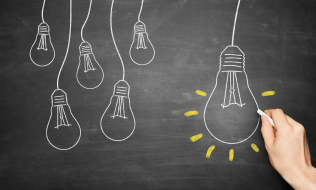

With mental health as an aspect of workplace disability on the rise in the electricity sector, Electricity Human Resources Canada has introduced an online portal to highlight the importance of accommodating employees with both mental and physical disabilities.
“We know we need more workers, we need more diversity and we need awareness and knowledge,” says Michelle Branigan, chief executive officer of Electricity Human Resources Canada, a hub for human resources in the electricity sector. She notes discussions around mental-health issues is increasing among employers in the sector. The portal, she says, “gives practical help to employers and helps them create a supportive work environment.”
It includes an employer resource kit to help companies take practical steps towards creating more inclusive and diverse workplaces, as well as tools for attracting and retaining employees with disabilities and help with the Accessibility for Ontarians with Disability Act’s reporting standards.
Read: Getting to know staff ‘one of the biggest things’ for addressing mental health
In the case of Ontario Power Generation Inc., which is responsible for about half of the province’s electricity generation, the organization knew mental-health issues were its No. 1 source of disability claims. It’s something that our supervisors are dealing with on a regular basis,” says Tanya Hickey, senior manager of corporate health and safety strategies at Ontario Power Generation.
“So we want to make sure they have the tools to be empathetic, be sympathetic, but also understand the complexities of return to work and how it’s going to be different from one person to the next.”
In partnership with the Ontario Shores Centre for Mental Health Sciences, the company introduced mental-health first aid training to its employees in May 2016. Since then, it has trained nearly 1,400 leaders, including managers, union representatives and “unofficial leaders” who have been identified as peer mentors.
Mental-health first aid is a two-day certified training program through the Mental Health Commission of Canada that incorporates various group work and role-playing exercises to help managers feel more confident and better equipped to assist employees with mental-health issues.
Read: What to consider when interviewing candidates with a mental illness
For Ontario Power Generation, mental-health first aid training focuses on identifying the signs and symptoms of mental-health issues, providing assistance, promoting recovery and supporting employees in their return to work. The really beneficial piece [of the training] is to identify when an employee is not working at their optimal level, approach that individual and get them help,” says Hickey, noting that’s where she’s seeing a move from performance management to a supportive role.
In addition to employee praise, Hickey says the training has resulted in increased productivity and reduced absenteeism. This includes a 33 per cent reduction in the number of days for major medical absences in the last quarter, as well as an increase in usage of the employee assistance program, from 13-14 per cent up to 20 per cent so far this year.
Read: Michael Garron Hospital wins mental-health award for holistic approach
There’s also been a decrease in the number of mental-health cases transitioning from short- to long-term disability. It’s getting people help earlier, and the one thing we do know about mental health is that if you get help sooner, your likelihood to recover is much greater,” says Hickey. “To me, that just makes the whole thing worthwhile.”
Electricity Human Resources Canada’s online portal motivated Burlington Hydro Inc. to host an employee town hall on mental health in June.
“The occasion provided the opportunity to reinforce mental health as an integral part of our safety program and to encourage employees to seek assistance without the stigma or hesitation all too often associated with mental-health issues,” says Jennifer Smith, chief human resources officer and vice-president of corporate relations at Burlington Hydro Inc. and a member of Electricity Human Resources Canada’s project steering committee.
Read: Former NHL goalie discusses battling mental illness in tough workplaces
Just a small accommodation would help people living with mental-health issues enter into and remain in productive work, says Louise Chenier, program manager for workplace mental health at the Mental Health Commission of Canada. “Any person without work and sufficient financial resources undergoes greater stress and difficulties maintaining self-esteem, dignity and an identity in our culture than people who are gainfully employed.
“Accommodation measures in the workplace allow employees with a physical or mental-health problem or illnesses equal access to rewarding employment.”
Oftentimes, non-physical accommodations can be more difficult for companies and employees to understand, says Kim Siddall, associate vice-president and a local health and benefits leader at Aon Hewitt. “Generally, teams want to support their colleague and, to the team; however, accommodations for non-physical disabilities can last longer than a physical accommodation and do not always happen in a straight line.”
Read: How to successfully reintegrate a returning worker from disability leave
